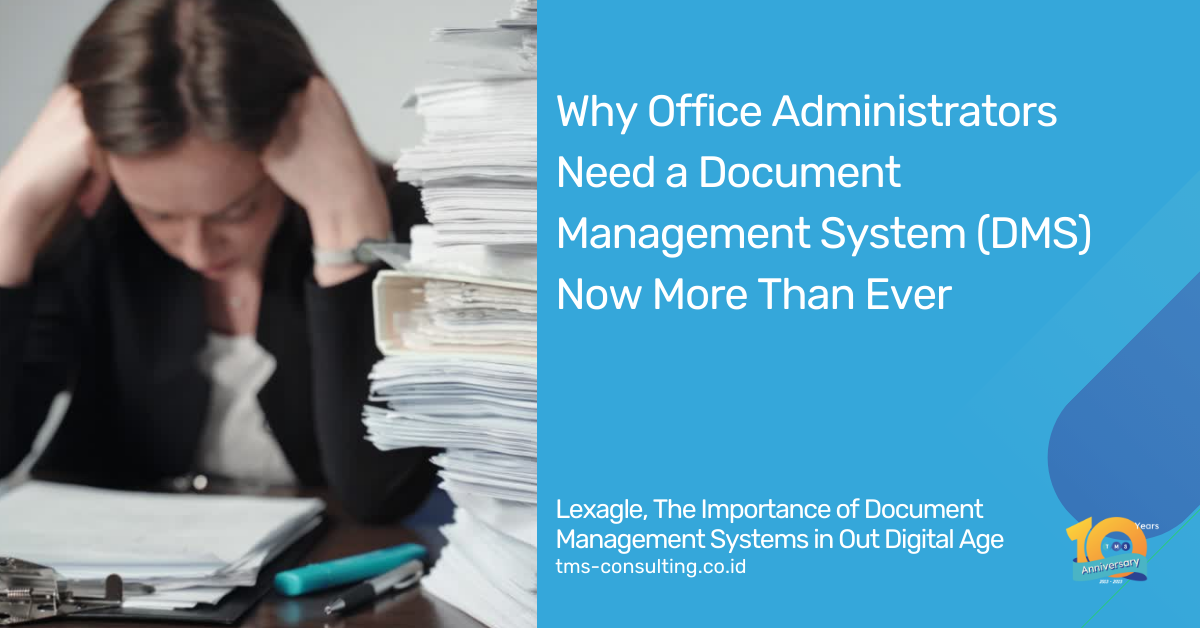In today’s fast-paced, digital world, managing documents efficiently has never been more critical. A Document Management System (DMS) offers a streamlined, secure, and cost-effective solution for handling documents, ensuring easy access, proper organization, and heightened security. Office administrators who have long struggled with manual processes and paper files can now turn to DMS software to simplify their workflows and minimize the risks associated with traditional document handling.
What Is a Document Management System (DMS)?
A Document Management System is a digital platform that enables users to store, organize, retrieve, and track documents electronically. DMS software allows for the automated management of files, including their creation, storage, editing, and sharing, through a secure platform. By improving efficiency, reducing human error, and ensuring regulatory compliance, DMS solutions are indispensable tools for office administrators managing critical information on a daily basis.
Key Benefits of a Document Management System for Office Administrators
1. Efficient Document Organization and Retrieval
Office administrators often spend a significant amount of time searching for documents and ensuring they’re properly organized. A DMS automates this process by categorizing documents with metadata and offering advanced search capabilities. Whether by keywords, dates, or document types, administrators can find files within seconds, dramatically reducing wasted time.
2. Enhanced Security and Compliance
Security is paramount for organizations handling sensitive documents. A DMS offers key features such as encryption, access controls, and audit trails to ensure that only authorized personnel can view, edit, or delete documents. Additionally, DMS systems are often designed to help businesses comply with stringent legal standards like GDPR and HIPAA, allowing document administrators to meet industry regulations with ease.
3. Cost-Effectiveness
Managing paper documents can quickly become costly due to the need for physical storage, printing, and filing supplies. By adopting a DMS, organizations significantly reduce their reliance on physical documents, leading to savings on office supplies and freeing up valuable office space previously occupied by filing cabinets. Storing documents electronically also ensures easy scalability as businesses grow.
4. Improved Collaboration and Version Control
DMS solutions enhance collaboration by allowing multiple users to access and work on the same document simultaneously. Built-in version control ensures that all changes are tracked, enabling administrators to revert to previous versions as needed. This level of transparency minimizes confusion and prevents errors when several individuals are working on the same project.
The Risks of Not Implementing a Document Management System: A Real-World Case Study
The consequences of not adopting a DMS can be disastrous. Consider the following case study involving a law firm that relied on manual document storage. The firm stored client contracts and legal documents in physical filing cabinets, and over time, poor file management became a major issue. During a legal audit, several crucial documents could not be located. The firm subsequently missed a key filing deadline, resulting in a lost court case and a costly financial settlement.
The fallout extended beyond financial penalties, damaging the firm’s reputation and exposing it to further litigation risks. Had the firm used a DMS, they could have avoided these issues by ensuring that all files were properly indexed, searchable, and securely stored. This case underscores the dangers of relying on manual document handling in organizations that deal with critical information.
The Dangers of Manual Document Handling for Office Administrators
While transitioning to a Document Management System may seem daunting, the risks of continuing with manual document handling are far greater:
1. Data Loss
Physical documents are vulnerable to being lost, damaged, or destroyed due to accidents, misplacement, or natural disasters. Manual backups are often inconsistent or incomplete. A DMS ensures that documents are regularly backed up and stored securely, providing peace of mind in the event of an emergency.
2. Non-Compliance with Regulations
In industries where compliance is crucial, relying on manual processes can lead to missed deadlines or a failure to follow regulatory guidelines, resulting in hefty fines and legal consequences. A DMS helps ensure that all documents are handled in accordance with industry regulations, preventing compliance violations.
3. Reduced Productivity
Without a Document Management System, office administrators and employees waste valuable time searching for documents, manually updating files, or verifying outdated information. This inefficiency drags down productivity and increases operational costs, making it harder for businesses to remain competitive.
Key Points
For office administrators tasked with collecting, organizing, and managing documents, the advantages of adopting a Document Management System (DMS) are undeniable. From streamlining workflows to protecting sensitive information and ensuring compliance with regulatory standards, a DMS offers a future-proof solution for managing documents in today’s increasingly digital landscape.
As the real-world case study illustrates, the risks of not implementing a DMS—including data loss, non-compliance, and reduced productivity—can lead to catastrophic outcomes, both financially and legally. Now is the time for office administrators to advocate for DMS solutions within their organizations, as the long-term benefits far outweigh the initial investment. In the modern office, a Document Management System is not just a convenience—it’s a necessity.
TMS Consulting is here to be your trusted partner on this exciting journey. With our commitment to Innovation, TMS Consulting can help you unlock your full potential and achieve sustainable growth in the digital age. Talk to us today and take the first step to being a part of the embracing digital transformation!
References :
Learningcurve, Document Security Explained: Why It’s Crucial for Your Business Success
Lexagle, The Importance of Document Management Systems in Our Digital Age






